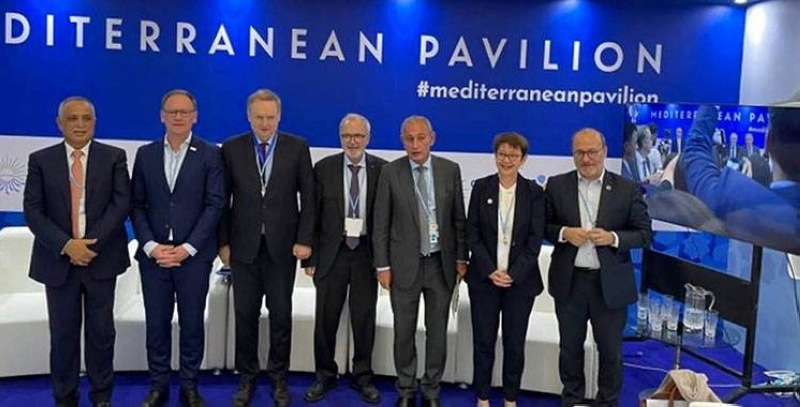
The Mediterranean region is warming 20% faster than the global average
The Mediterranean Pavilion is designed as a meeting place for all regional actors – public and private, scientific and academic, technical, decision-makers, civil society, finance and business – actively involved in the fight against the climate crisis in the Mediterranean. This effort is being carried out under the leadership of Union for the Mediterranean (UFM), United Nations Environment Program – Mediterranean Action Plan (UNEP-MAP) And this PRIMA Foundation, as well as the group of most relevant climate action organizations in the region. In an innovative approach, there will be a pavilion Independent Network of Mediterranean Experts on Environment and Climate Change (MedECC) as scientific advice for its operations. MedECC brought together more than 600 scientists from 35 countries and published the full in 2019. First Scientific Assessment Report Environment and impact of climate change in the Mediterranean region.
Located in the Blue Zone of COP2, the pavilion will host relevant events and working meetings, and will provide an exceptional opportunity to highlight these key challenges and to explain, share and intensify efforts implemented in the region.
From Nobel laureate in physics Giorgio Parisi, former director of the Earth Institute and renowned economist Geoffrey Sachs, from Prince Albert II of Monaco to Princess Rahim Al-Ali of Jordan, many prominent figures are scheduled to intervene during the pavilion’s operation. Among the many events planned, we have selected a few:
A workshop-discussion between journalists and scientists on how to make climate change easier to understand, led by Maria Cafaro, editor-in-chief of Tg3 at RAI.
Provision of Earth observation data collected by the European Union space program Copernicus to measure the impact of sea level rise on UNESCO World Heritage Sites.
Highlights of 3 exciting reports to be published at MedECC 2023
7 Launch of the Energy Efficiency in Buildings Program funding large-scale projects to replace sand construction in southern Mediterranean countries.
Oxford University scientists will present the results of their research on future water and energy strategies in resource-scarce areas in the MENA region.
“Social mediaholic. Tv fanatic. Gamer. Professional explorer. Amateur music junkie.”
 The Press Stories
The Press Stories

